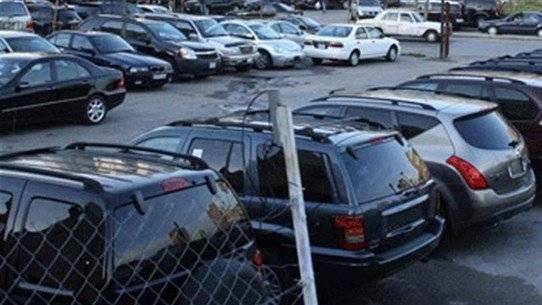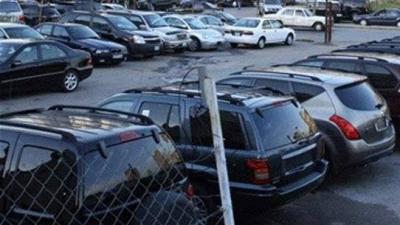Like other sectors in Lebanon, the automotive sector is facing a severe blow due to the ongoing crisis. The problem is exacerbated by the sector's direct connection to banks, which are supposed to provide liquidity and facilitate buying and selling operations. Showroom owners have lost confidence in the sector, while citizens struggle to entertain the thought of "buying a car" under these circumstances. Even if the thought arises, where would they find the money to pay for it?
The automotive sector in Lebanon is considered one of the vital sectors that forms a cornerstone of the economy. This sector, which used to fill the state's treasury with fees and taxes, is now collapsing and leaving the country. The priorities of the Lebanese citizen have changed, and they can no longer afford the luxuries they were once accustomed to; their only concern now is providing essentials like food, drink, medicine, and shelter. Many have either sold their cars due to the inability to bear the costs of maintenance, insurance, spare parts, and fuel—with sky-high prices that drain their wallets—or left them parked under their homes, using them only when absolutely necessary. As a result, the majority of citizens have stopped performing regular and systematic check-ups on their cars, visiting repair shops or mechanics only when the vehicles break down completely. Many citizens have lost a basic means of recreation and facilitation of daily matters, especially after the collapse of an already struggling public transportation sector.
According to numbers presented by Eli Qazzi, the president of the Syndicate of Used Car Importers in Lebanon, "In light of low wages, the deterioration of the banking sector, the halt of bank loans, and the seizure of depositors' funds on one hand, and the car companies and showroom owners on the other, the sales of used cars have declined by 85 percent." He continues, "Likewise, the processes of shipping cars have decreased. Sales transactions are now conducted exclusively in cash US dollars. All these factors have led to the closure of about 60 percent of showrooms in Lebanon." Qazzi noted a significant decline in the number of used car shipments, which dropped from 27,835 cars in 2019 and 43,930 cars in 2018 to 7,950 cars in 2020.
A New Civilization for the Country
Another change affecting the types of used cars in Lebanon is due to the financial crisis, especially after the rise in fuel prices, causing the luxury cars to now be seen only on magazine covers. The demand for small cars for daily use has increased, while the sale of 6 and 8-cylinder cars has significantly declined. Qazzi confirms, "There is a clear decrease in the import and sale of large cars, which citizens are trying to replace with smaller and more economical ones. We are aligning with market demand, but selling this type of cars does not ensure significant profit, which is why many showroom owners have closed their doors. However, those who are still holding on have sold their properties." He urges the state to pay attention to this sector because all sectors related to cars are interconnected, and reviving the market for importing used cars could save other sectors.
Regarding the state of the new car market, Jean Al Azm, the sales manager at Hyundai, states, "The new car sector has significantly declined; on one hand, sales have decreased by around 90 percent following the collapse of the banking sector. Previously, annual new car sales were about 2,000 cars, while today, they barely exceed 200 cars. On the other hand, after the cancellation of exclusive agencies, the demand for car rental companies, especially tourist rentals, has dropped to 30-40 cars, down from over 150 cars." According to Al Azm, these numbers indicate the aging of cars in Lebanon, endangering drivers' safety, "Lebanon has become akin to poorer neighboring countries like Syria and Cuba, characterized by the phenomenon of aging vehicles and the inability to maintain them or purchase newer models." He believes that the life of this sector can only be revived through one method: "reviving the banking sector."
It appears that the collapse in Lebanon is worsening day by day as the people are impoverished, humiliated, and deprived of their most basic daily rights. Owning a car is a trivial detail compared to the necessity of medicine, food, shelter, electricity, and water. But why should the Lebanese people live in humiliation? Why must they change their lifestyle and consumption behaviors? Because of their rulers? asks Qazzi, "When the state decides to lift subsidies on fuels, and when the cost of maintaining a car exceeds a citizen's monthly salary, it must provide alternatives for its citizens. This has not been, and will not be available soon."
- Jouelle Faghali - Nidaa Al-Watan




